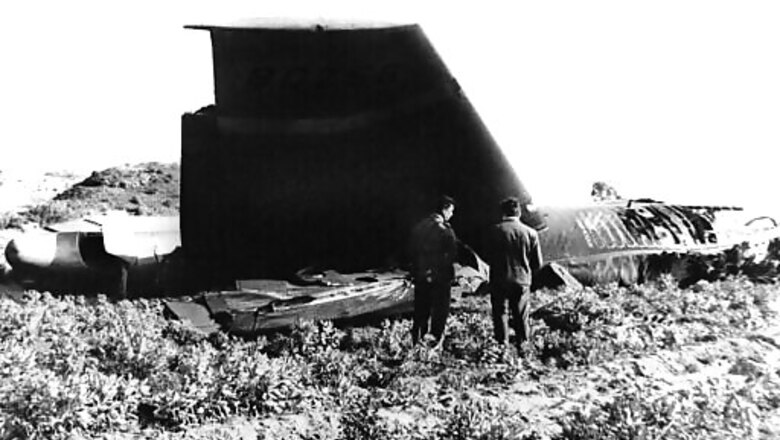
views
HARTFORD, Conn.: The U.S. Department of Veterans Affairs used flawed radiation data to deny disability benefits to veterans who responded to a 1966 plane accident involving U.S. hydrogen bombs in Spain, Yale Law School students told a federal appeals court Wednesday.
The students are representing Air Force veteran Victor Skaar, of Nixa, Missouri, in a class-action lawsuit seeking benefits for him and others who say they were exposed to radiation during the recovery and cleanup of the undetonated bombs and later became ill.
The VA has denied those veterans who are now elderly and facing a variety of health concerns benefits and has refused to recognize the conditions of their service for over 50 years, Yale student Lily Halpern told the U.S. Court of Appeals for Veterans Claims during a hearing held by phone. So while this case is about unsound science, it is also about remedying a grave injustice.
A lawyer for the VA defended the radiation exposure data, and the three-judge panel is not expected to rule for weeks or months.
On Jan. 17, 1966, a U.S. B-52 bomber and a refueling plane collided during a refueling operation near the southern Spanish village of Palomares, killing seven of 11 crew members but no one on the ground. At the time, the U.S. was keeping nuclear-armed warplanes in the air near the Soviet border as the Cold War was in full swing.
The midair crash resulted in the release of four U.S. hydrogen bombs. None of the bombs exploded, but the plutonium-filled detonators on two went off, scattering 7 pounds (3 kilograms) of highly radioactive plutonium 239 across the landscape.
The 1,600 servicemen who were sent to the crash site area to recover the weapons and clean up the contamination were exposed to dangerous levels of radiation daily for weeks or months at a time, according to court documents filed by the Yale students. Many of the servicemen later developed various forms of cancer, blood disorders, heart and lung dysfunction and other sicknesses but were denied disability benefits by the VA.
Skaar, an Air Force veteran who is now 83, told The Associated Press in 2017 that he has a blood disorder and developed melanoma and prostate cancer, which were successfully treated. He believes his ailments were related to his service in Palomares, he said.
He and other military members did not wear protective clothing or masks as they cleaned up the site, he said, and they now feel betrayed by their government.
The VA’s denial of disability benefits was based on radiation exposure estimates compiled by the Air Force, Halpern said. Although most of the military members in Palomares provided urine samples for testing in 1966, Air Force officials did not use 98% of the test results, leading to inaccurate estimates of the radiation exposure that likely were much lower than they really were, she said.
Halpern said the VA did not use scientifically sound evidence as required to deny benefits to the Palomares veterans, and she asked the court to order the agency to reassess the disability claims using sound evidence. The Yale students are seeking to overturn a ruling by the Board of Veterans’ Appeals that rejected Skaar’s appeal of the denial of his benefits.
Mark Vichich, an attorney for the VA and Secretary Robert Wilkie, defended the validity of the radiation exposure estimates during Wednesday’s court hearing.
But Judge Michael Allen questioned Vichich on whether the VA looked into whether the Air Force’s estimates were scientifically sound.
“The secretary has had no reason to suspect that the information the Air Force is giving us is not based on sound science,” Vichich said.
Disclaimer: This post has been auto-published from an agency feed without any modifications to the text and has not been reviewed by an editor
















Comments
0 comment